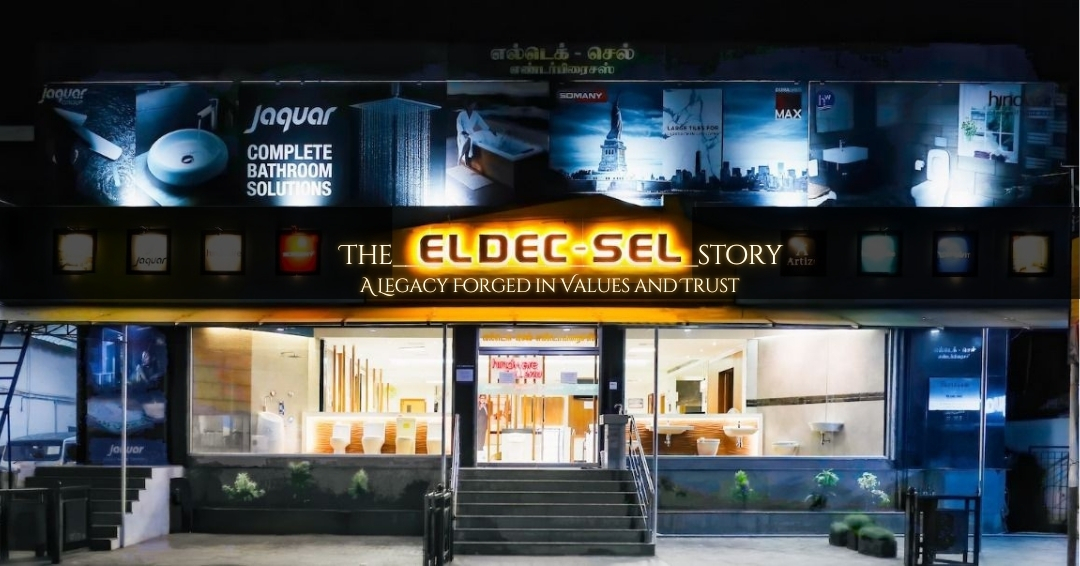
The story of a business is often told through balance sheets and growth charts. But for some, the journey is etched in their origins — a narrative of family, foresight, and an unshakeable ethical compass. The story of Coimbatore's Eldec-Sel Enterprises is one such tale. It begins not in a bustling city, but in the unique backwater region of Kerala, with a name that speaks of a completely different sphere of activity: Electro-Diesel.
At the helm today is Mr. Satish Santanam and his son, Mr. Sharang Satish, the custodians of a rich legacy. The company, now a leading name in sanitary ware, bathroom fittings, and tiles, has a history as fluid and dynamic as the waters from which it emerged. It’s a story of constant evolution, guided by a simple yet profound philosophy: to always remain relevant, while retaining the commitment to values.
The Name and the Necessity: Origins in Alleppey
The journey began in 1956 in Alleppey, Kerala. It started as a family concern, a common practice where seniors pooled in the family resources. The key figures were Mr. Satish’s father, the late Mr. Santanam, and his periyappa (uncle), Mr. Ramdas, the younger brother of the renowned agricultural scientist, Dr. M.S. Swaminathan.
The company's name, Electro-Diesel was born from a unique agricultural challenge in the Kuttanad region, the rice bowl of Kerala. Here, the family was pioneers in a practice called Kayal Krishi—agriculture in the backwaters. Mr. Satish explains the fascinatingly counter-intuitive process: “Anywhere else in the world, water is pumped into the fields ... here it is the complete opposite”.
In the reclaimed paddy fields of Kuttanad, farmers faced the constant threat of flooding, especially during high tide. If the excess water wasn't pumped out within a critical window of three to four hours, the entire crop would be destroyed . Mr. Satish’s father and uncle saw an opportunity to provide a solution. They began marketing diesel pumps and gensets to the farmers, enabling them to pump water out of the fields. This direct connection to their products gave the company its name - Electro Diesel .
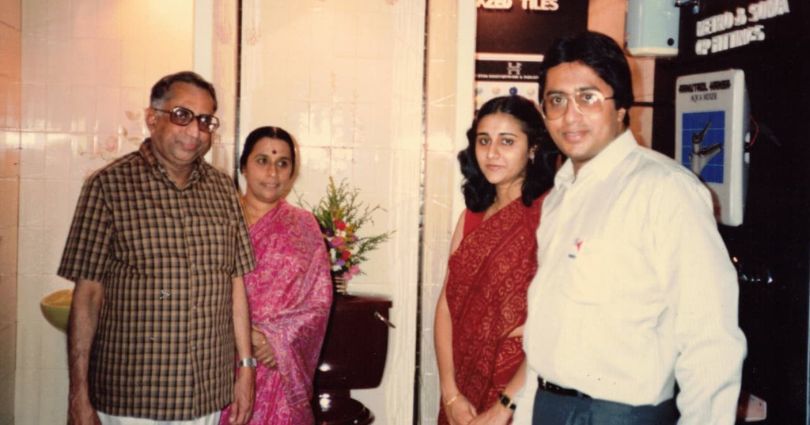
A New Direction in a New City
The narrative took a pivotal turn in 1957 when Mr. Santanam moved to Coimbatore, seeing the potential it offered. He brought the name "Electro-Diesel" with him, but the business itself was about to undergo a radical transformation. Within months of arriving, he acquired a running agency dealing in sanitary ware and tiles.
The original business of diesel engines had morphed, but the name, interestingly, remained. “Within maybe a year, the name had already become a misnomer, meaning that we had nothing to do with either electrical or diesel... but the name stuck, and it continued to be that way till 1994”.
The early days in Coimbatore, operating from Avinashi Road, reflected a different era. The market size was small, and choices were few. “It was like your Ambassador or Fiat car, everything was rather limited,” Mr. Satish recalls. Wall tiles came in just two designs—a "cloudy design" and a "smokey design"—and were predominantly just white, pink, or blue. The standard size was 6x6 inches, and the introduction of a rectangular 8x4 inches tile was considered a revolution. (This is in contrast to today’s market where sizes like 8x4 feet or 6x4 feet have become commonplace).
The company dealt with the pioneering manufacturers of the time, like Hindustan Sanitaryware, and a few imported brands like Shanks and Twyfords from England.
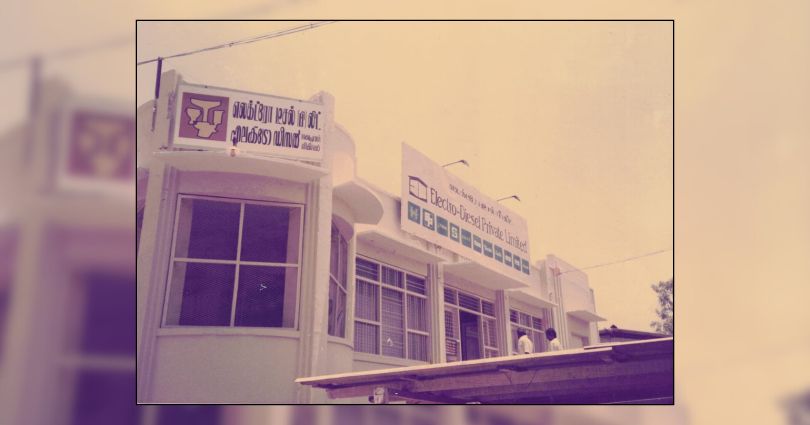
Foresight and a New Landmark
In the mid-1970s, Mr. Satish's father made another forward-thinking move. As the construction of the flyover on Avinashi Road was posing challenges, he relocated the company to what was then a "desolate place". People questioned his logic, as the area had virtually no activity and was considered to be inaccessible. Little did they know that the place would later become a bustling hub of activity.
This new location was the iconic Srinivas Theatre office building on Brooke Bond Road. The theatre itself had a storied past, built primarily for the British troops stationed in the area during World War II and known for screening classic English films like The Ten Commandments and Ben-Hur. Electro-Diesel moved into the office building with the basement, which was earlier the theatre’s popular canteen.
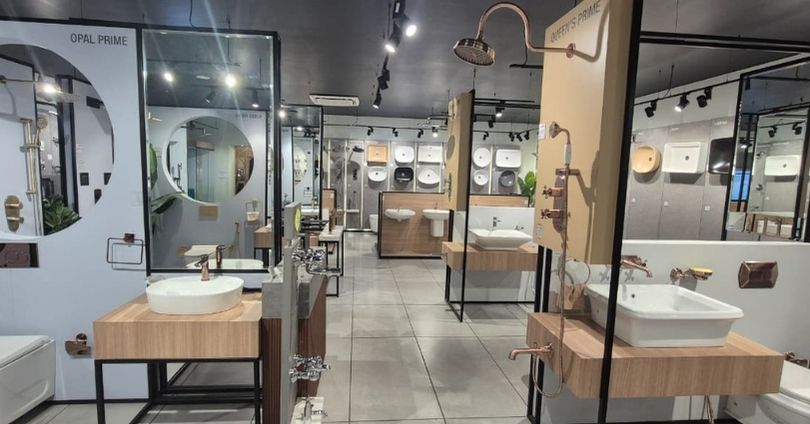
A New Generation, A New Vision
Mr. Satish joined his father in the business in 1987 after a stint in Bombay. He brought with him a fresh perspective, deeply respecting the foundation his father had built. “My father, Mr. Santanam was a pioneer in the trade and a person who was highly respected for his sense of honesty and ethics,” he states, emphasizing that this value system was (and continues to be) the bedrock of the company.
Driven by his experiences, Mr. Satish introduced changes that would once again place the company abreast of the times. He spearheaded the move to computerization, a novel concept for the trade in that era, and one of the first in the field to do so. He also recognized the need to shift from a simple transactional model to an experiential one. “I also felt that we needed to have a showroom where product display was given prominence” he says.
In 1994, the business underwent a formal restructuring. That year, the Coimbatore based operations of the company was carved out as a separate entity. A new name was needed—one that hinted at the old without being identical. The solution was found in the company’s old telegraphic address: ‘ELECDIESEL’ (for Electro-Diesel). Thus, Eldec-Sel Enterprises was born as a proprietary concern under Mr. Satish’s name.
This new chapter was marked by another landmark decision. In 1995, Eldec-Sel partnered with Jaquar, then an emerging brand. It was a move that required them to "burn bridges" with their previous suppliers, but it paid off handsomely. “We are also identified with Jaquar,” Mr. Satish notes, expressing pride in distributing a completely Indian brand that has achieved global
stature. The full realization of the showroom vision came to fruition in 2002 when the old theatre building was completely rebuilt—retaining its original footprint as a nod to its history—and inaugurated by Dr. M.S. Swaminathan. An expansive 15,000 sq. ft. showroom now stands there, with further additions and modifications, introduced by Mr. Sharang Satish that offers a range of bathroom and other building products.
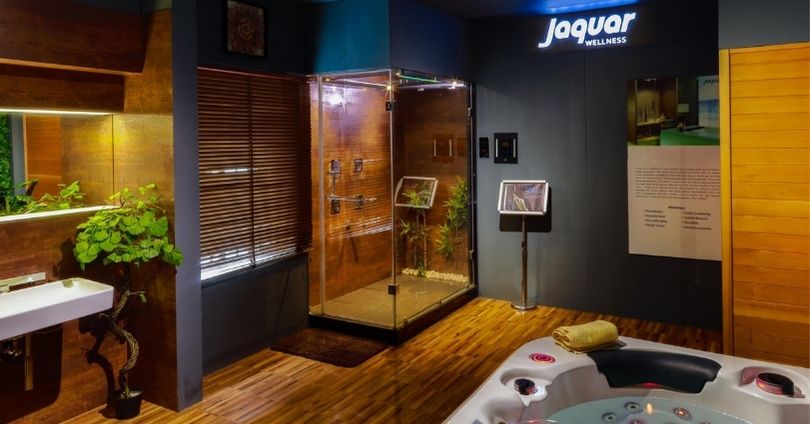
The Roots That Nourish
To understand the company’s resilience and values, one must trace the family's journey back even further. Originally from Karaiyur in Thiruvarur District, they are part of a community that migrated to Kerala generations ago, that today goes by the name “Palghat Brahmins”. This migration was driven by factors including famine in the Thanjavur region and a need for priests in Kerala's temples. The family’s ancestral home, or tharavad, is in an island village called Mankombu and is over 200 years old, a testament to their deep roots.
The close family bond is exemplified by the story of Mr. Satish's paternal grandfather, Sri Narayanaswami and Dr. Sambasivan, who was Dr. M.S. Swaminathan's father. They were brothers who moved from Kerala to Kumbakonam in the 1930s. Dr. Sambasivan, who was Chairman of the Kumbakonam Municipality and a widely respected citizen, passed away at the young age of 40. It was Mr. Narayanaswami who then stepped in, raising both his own children and his brother's children as one family. “Virtually, my father and Dr Swaminathan with their siblings all grew up under one roof,” Mr. Satish shares, highlighting the intertwined upbringing that shaped their generation.
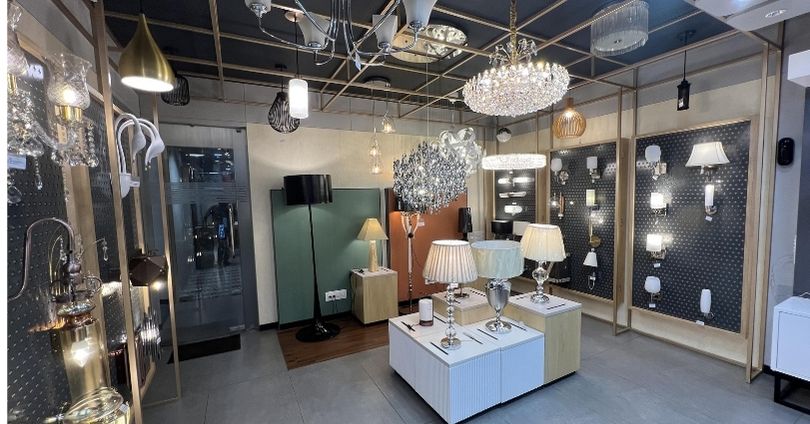
The Unwavering Compass: Integrity, Innovation, and the Future
Through decades of change, one thing at Eldec-Sel has remained constant. “For us, values and ethics are non-negotiable,” Mr. Satish firmly states. This principle, inherited from his father, is what he credits for the company's sustained growth and respect in the industry.
While Mr. Satish Santanam carried forward the strong ethical foundation laid by his father, he offered a refreshingly pragmatic view on his own motivations. He explained that while his father's approach was driven by "pure ethics," his own reasons were twofold. "My father did it for reasons of ethics... I did it for ethics plus convenience," he shared, adding, "I just find it convenient to be ethical". This principled yet practical approach enabled a transparent, system-driven business, which in turn gave him the freedom to pursue his passions, like extensive travel, confident in the company's stable and honest operations.
One of Mr. Satish's biggest passions is travelling. This was not a hobby saved for retirement; he pursued his travels even during the peak of his active business years, a freedom he credits to having a system-driven company. Accompanied by his wife, Jayanti, who shares his passion, they have travelled to over 40 countries. These journeys were often connected to his deep interests in wildlife, nature and photography.
Today, the legacy continues with the involvement of Mr. Satish’s son, Sharang. A qualified architect from RV College, Bangalore and a management degree from the University of Strathclyde, Glasgow, Mr. Sharang Satish brings contemporary expertise to the business. Mr. Sharang candidly acknowledges the challenges of inheriting a legacy, noting that his role is to "adapt and improve”. Mr. Sharang who is an avid bird watcher, leverages his background as a qualified architect to add a unique layer of value. He likes to connect with other architects dynamically and offer them value-added services like 3D bathroom designs and graphic visualizations.
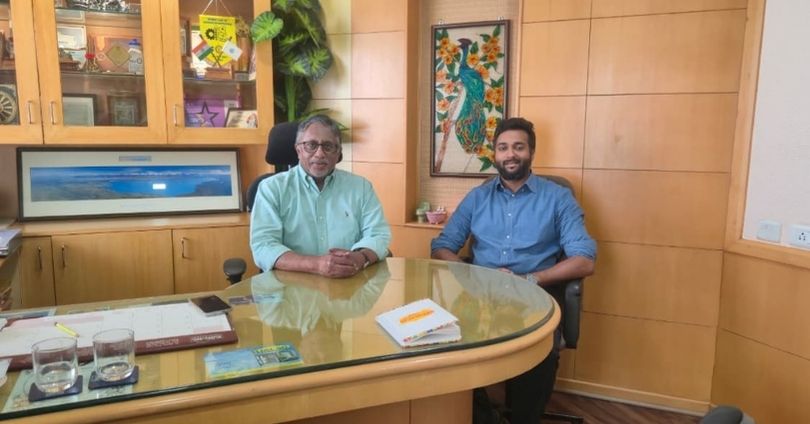
For him, this is more than a sales strategy; it's a source of creative fulfillment. "I also enjoy doing it because there is satisfaction and contentment in it, rather than merely looking at numbers," he explains. This creative energy is also directed at evolving the company’s image, pushing past the traditional perception of Eldec-Sel to establish it as a continuously evolving institution with innovative and multiple choices. This involves strengthening their digital presence and carefully curating their offerings to customers, that is not overwhelming. He adds that they are guided by a simple principle: "We want to go beyond selling… we want to create genuine and fulfilling experiences”. And so, the legacy of values continues.
From selling diesel pumps in the backwaters of Alleppey to creating experiential bath and wellness spaces in Coimbatore, the journey of Eldec-Sel is a powerful narrative of adaptation. It is a story that proves that a business can modernize, grow, and innovate, while being anchored by a tradition of integrity. It is more than just the history of a company — it is the living history of a family that has known how to navigate the tides of change while upholding dharmic ways of doing business.
 Vigneshwaran, Senior Correspondent of TheVerandahClub.com is both a skilled digital content writer, story teller and marketer by profession, as well as an avid independent writer driven by his passion. His literary talents extend to crafting beautiful poems and captivating short stories including the Sehwag Tales series. In addition to these creative pursuits, he has also authored a book titled "Halahala," which can be found on Wattpad.
Vigneshwaran, Senior Correspondent of TheVerandahClub.com is both a skilled digital content writer, story teller and marketer by profession, as well as an avid independent writer driven by his passion. His literary talents extend to crafting beautiful poems and captivating short stories including the Sehwag Tales series. In addition to these creative pursuits, he has also authored a book titled "Halahala," which can be found on Wattpad.
PREVIOUS ARTICLE

"A staggering one in five children in India is pre-diabetic," revealed Mrs. Swathy Rohit, the visionary founder of Coimbatore-based digital health p...

Where a rhythmic cadence of music blends seamlessly with the structured world of auditing, we found Mukund Swaminathan, a 26-year-old maestro who has...
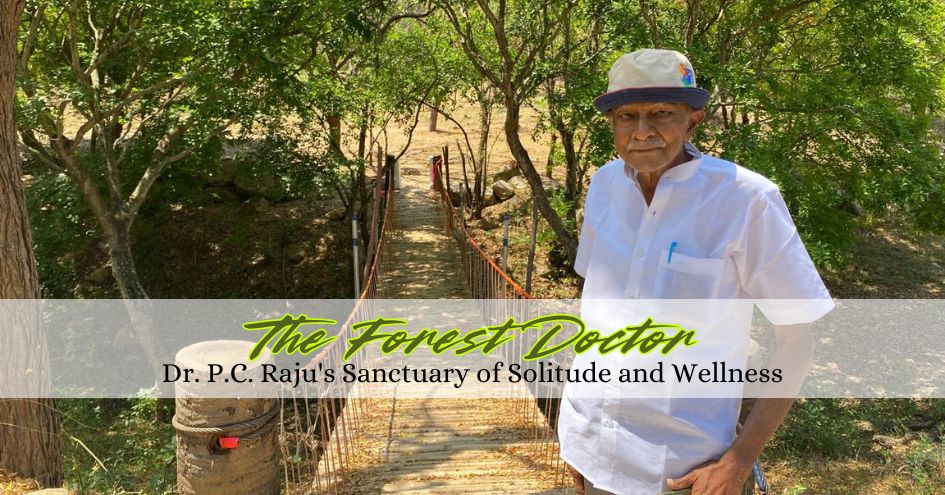
"Life doesn't offer retirement, only professions do. While I've stepped away from my practice, I haven't retired from living. No one truly retires whi...